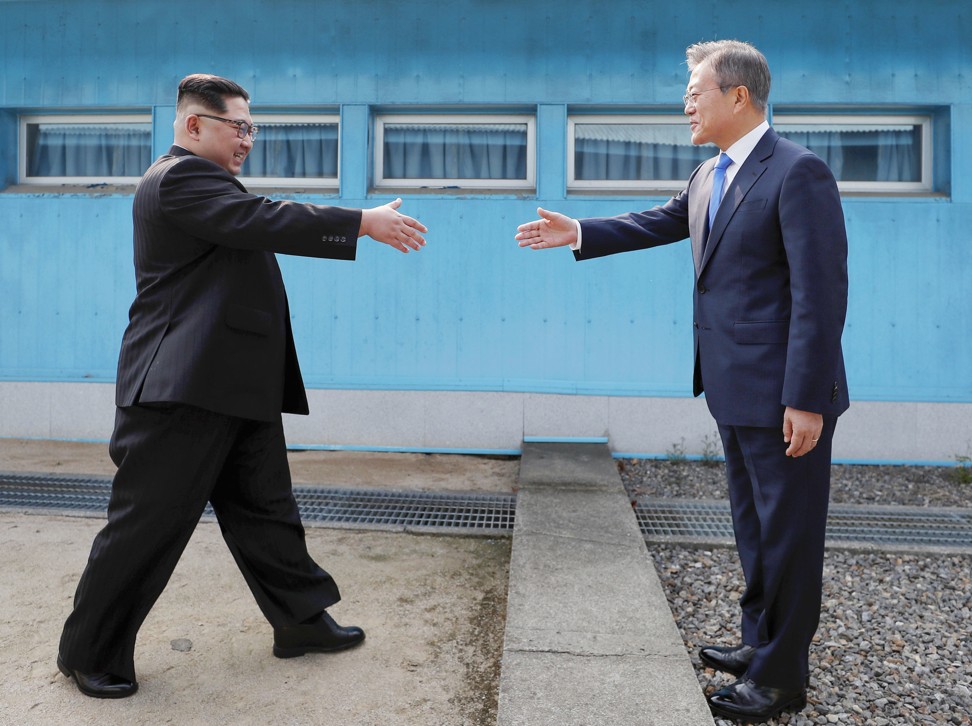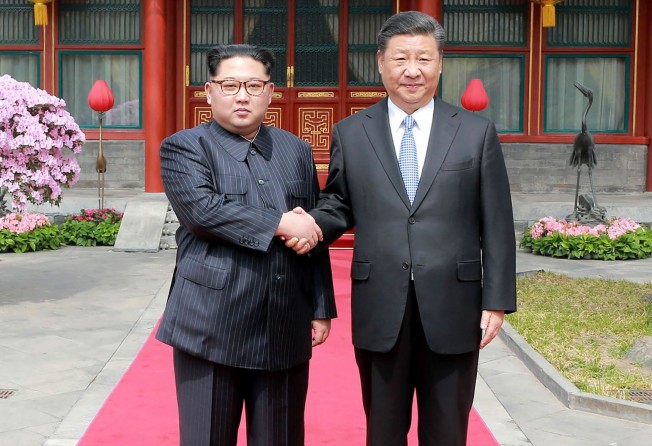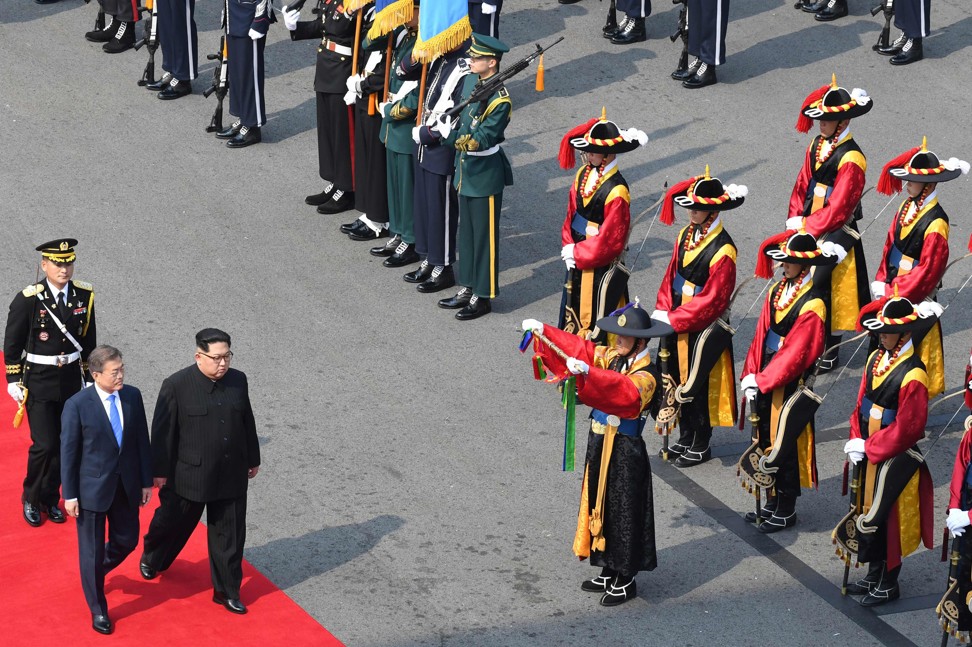
North Korea still looking to China for economic and political security, analysts say
It won’t be possible to move forward on denuclearisation without Beijing giving Pyongyang the incentives to give up its weapons, according to experts

China is still an indispensable player in the Korean peninsula issue following Friday’s historic summit, because Beijing can provide economic and political assurance to Pyongyang, analysts said.
After North Korean leader Kim Jong-un and his South Korean counterpart Moon Jae-in agreed to a goal of “complete denuclearisation” to achieve a nuclear-free peninsula, and to establish permanent peace, hopes are high for a planned summit between Kim and US President Donald Trump in May or June, followed by a trilateral summit.
But international relations experts say it will be impossible to move forward on denuclearisation and peace without China’s involvement, as Beijing will give Pyongyang the economic incentives and political security it needs to give up its nuclear weapons.

In the Panmunjom Declaration agreed on Friday, North Korea made the vague promise of fulfilling its “responsibilities and roles in the future”. But Washington has specifically demanded a “complete, verifiable and irreversible” dismantlement of the North’s nuclear programme.
“There is a big gap between the North Korean and US definitions of denuclearisation of the Korean peninsula,” said Zhang Tuosheng, director of the Centre for Foreign Policy Studies at the China Foundation for International and Strategic Studies.
North Korea last week announced it would close down a missile launch centre and stop nuclear tests, which was praised in Friday’s agreement as “very meaningful and important”.
But how much further Pyongyang is prepared to go, and how fast it would act, will depend on what is on offer in exchange for making concessions, according to Kim Joon-hyung, a professor at Handong Global University.
“If the price is right”, he said, North Korea could push ahead with denuclearisation.
Although Pyongyang’s nuclear weapons – and its intercontinental ballistic missile capable of reaching the US mainland – will give it more leverage in the negotiations, observers said Trump was known for driving a hard bargain.
Talks between the North and the US were still the key to denuclearisation, but it will be important to have other parties in the deal, and Trump will be happy to have China pay for it, according to Moon Chung-in, special adviser to the South Korean president on unification, foreign affairs and national security.
“President Trump would want to say, ‘I did it without spending a single penny’,” Moon said.
China is North Korea’s biggest trading partner, accounting for more than 90 per cent of its trade – including supplying strategic resources like oil, as well as aid.
Its willingness to impose economic sanctions on North Korea could have been a significant factor in Kim deciding to change course, according to Andrei Lankov, a specialist in Korean studies at Kookmin University in Seoul.
International sanctions were imposed in response to Pyongyang’s nuclear and missile tests. China has restricted oil supplies to the North and banned imports of North Korean goods such as textiles and seafood.
With Pyongyang and Washington headed for talks, China could now lift some of those sanctions to try to repair damaged ties and regain some of its influence over the North, said Yun Sun, director of the China Programme at US think tank the Stimson Centre.
What Pyongyang wants most is a guarantee for its regime and political system, otherwise it will not fully abandon its nuclear weapons programme, according to Cho Seong-ryoul, head research fellow at the Institute for National Security Strategy in Seoul.
Beijing could help to provide this – it has long opposed the use of military measures to solve the nuclear issue on the Korean peninsula, suggesting it would not let the Kim regime collapse.

The Panmunjom Declaration will pursue a binding document to officially end the Korean war, which was halted by an armistice signed in 1953, as well as hostility between the US and North Korea.
Keeping Beijing involved will be vital, according to Cai Jian, an expert on Sino-North Korean relations at Fudan University in Shanghai.
“The expected peace treaty, which will aim to replace the ceasefire, will lose legitimacy without Beijing’s endorsement,” Cai said.
John Delury, a professor of international relations at Yonsei University in Seoul, said negotiations between North and South Korea and the United States could be more successful in achieving progress than the previous China-led six-party talks, but Beijing should also be involved diplomatically as much as possible.
He added that Beijing had been marginalised when the Kim-Moon-Trump axis was driving the process, which had made it nervous.
Chinese President Xi Jinping reportedly plans to visit Pyongyang, possibly in June, after Kim chose Beijing for his first international trip as North Korean leader in March, showing that China is still part of the negotiations.
“Kim went to Beijing, which helped to deflate the anxiety – and the three parties need to keep doing that,” Delury said.